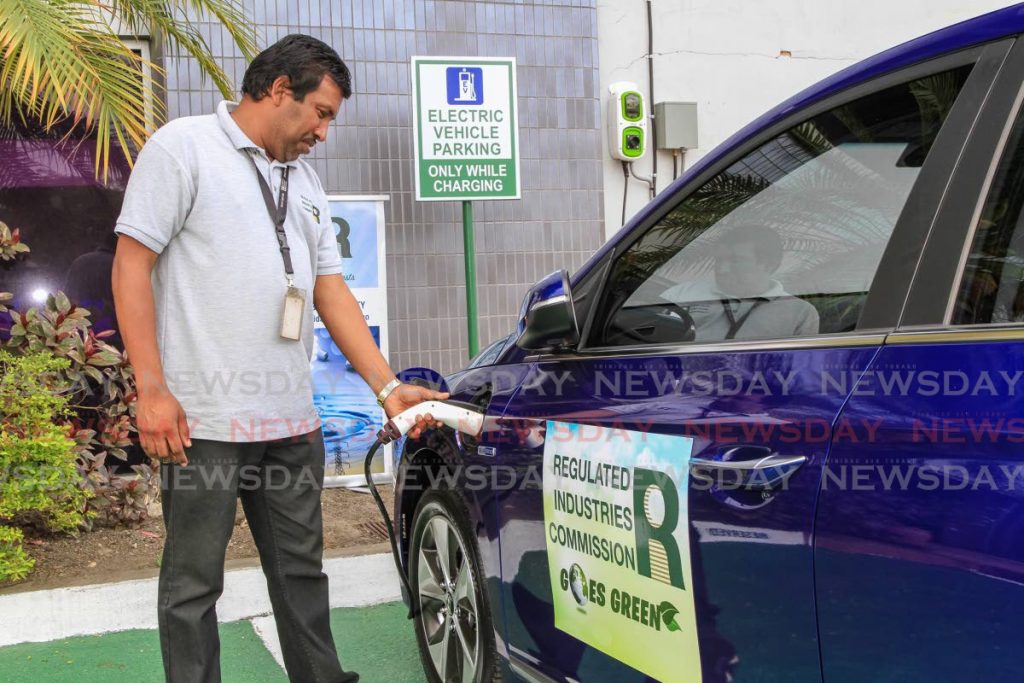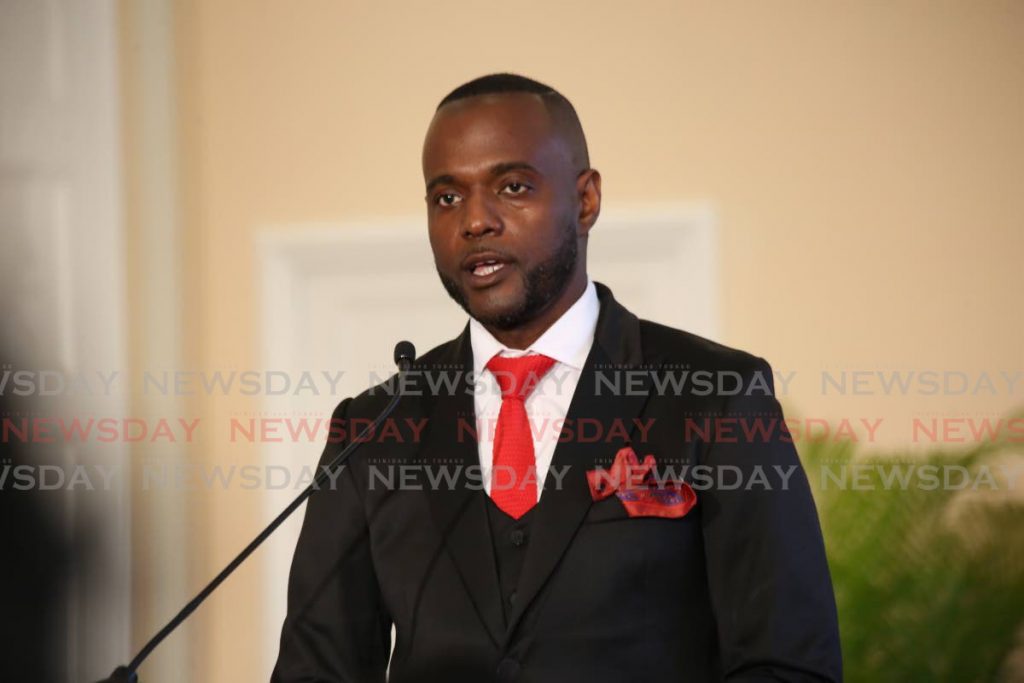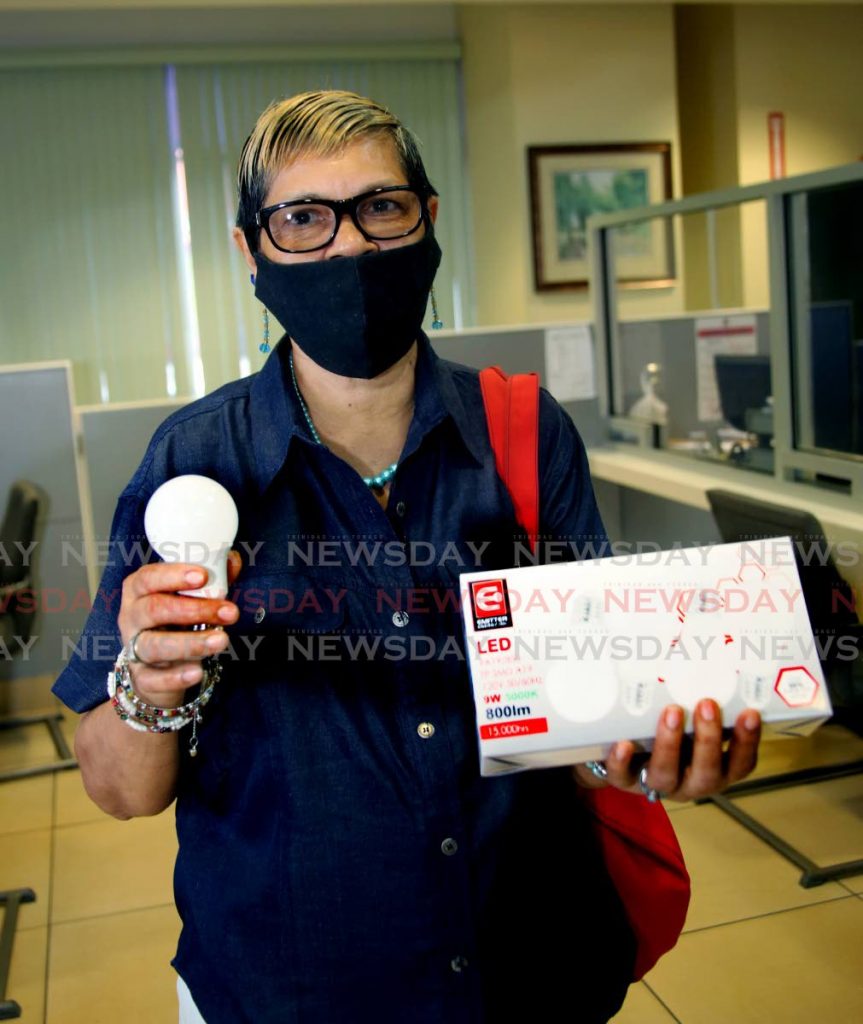Gonzales: Govt approach to climate change runs deep

Minister of Public Utilities Marvin Gonzales says the State's approach to climate change and its causes "is as wide as it is deep," and encompasses all sectors and levels of the national community.
Gonzales delivered the feature address at Monday's opening of the American Chamber of Commerce's 24th Health, Safety, Security & Environment (HSSE) Conference & Exhibition, which is being held virtually because of the covid19 pandemic.
"For hundreds of years, mankind has had a love affair with fossil fuels. And understandably so. Coal, and then oil and gas, along with their downstream industries, have literally driven the global economy."
But, he said, as with all relationships, there must be a point where one steps back to assess the situation.
"(And) in the case of fossil fuels, it is obvious that we cannot continue to sustain our relationship without doing irreparable damage to ourselves and to the planet that we call home.
"Government has realised that despite our unique position as an oil- and gas-producing country, the sustainable use of our energy resources is the first step in the journey towards a sustainable and resilient energy future."
He said TT was not the only country to come to this realisation.

"Many countries are individually and collectively taking systematic steps to re-imagine and reshape their relationship with fossil fuels. They are actively adopting energy efficient and energy conservation initiatives and attempting to inculcate it into their daily lives."
He said in at least 21 countries, energy-utility obligation programmes have been established, mandating energy companies to adopt energy-saving targets within a certain time frame.
He said in the European Union, India, the US, China and Australia, "grants and tax relief dominate fiscal mechanisms to encourage energy efficiency activities."
As an example he noted that India’s Energy Conservation Building Code mandates new buildings illustrate energy savings of 25 per cent to be code-compliant.
And the UK's clean growth strategy, he added, focuses on measures to improve the efficiency of commercial buildings and industry by a minimum of 20 per cent by 2030.
He said locally, government, through his ministry and T&TEC, is also promoting and facilitating energy conservation and energy efficiency.
He began by noting the Cabinet-appointed, Energy Conservation and Energy Efficiency (EC&EE) Inter-ministerial Committee, which was initiated last year to develop an EC&EE policy and action plan for a five-year period, along with other initiatives, for which funding was allocated in the 2020/2021 budget.
The plan, once implemented, he said, would lead the way towards reducing this country's energy consumption.
He said the programme to distribute LED light bulbs and the T&TEC's Energy Management Application were launched just last month. The distribution programme involved procuring and distributing 1.6 million light bulbs to 400,000 residential customers.

He added that the Energy Management Application will assist households in managing their electricity consumption.
"Both initiatives are meant to increase public awareness around the issues of electricity conservation while providing consumers with concrete tools and strategies to enact change in their electricity consumption," he said.
He noted, as announced in the 2020/2021 budget, that his ministry is facilitating a level-one energy audit and retrofit of Tower C at the International Waterfront. The project, funded by the Inter-American Development Bank, is nearing completion. He said the retrofitted building will improve energy management and reduce electricity consumption.
There are ongoing discussions with the Bureau of Standards (TTBS), he said, to promote and use the Caribbean Renewable Energy and Efficiency building construction codes in new construction. These standards, which cover both residential and commercial construction, he said, "will increase adoption rates of more effectual technologies for renewable energy and energy conservation."
As important as these measures are, he said, "Government understands the importance of long-term planning and implementation, and as such, has mandated the development of an Integrated Resource and Resilience Plan for the electricity sector of TT.
"That initiative, funded by the Caribbean Centre for Renewable Energy and Energy Efficiency, will guide decision-making on the appropriate electricity mix for TT over the next 25 years. It is earmarked for completion by 2022.
"It should be noted that government’s position on utility scale is ten per cent renewable energy by 2021 and 30 per cent by 2030.
"To this end, we are currently facilitating the implementation of a 112 megawatt utility scale solar project, which will add to the overall energy generation capacity.
Additionally, he noted the construction of a 1.4 megawatt solar plant at Piarco Airport, funded by the European Union International Civil Aviation Organisation; and the construction of a solar-covered car port and three level-two electric vehicle-charging stations, funded by the United Arab Emirates' Caribbean Renewable Energy Fund.

"To facilitate the proper integration of these and other renewable energy sources into the energy mix, a feed-in tariff policy must be developed and implemented," he said, adding that the policy is intended to promote the integration of renewable energy sources of power into the national electricity grid. The policy will soon be finalised by the committee, he said.
"In the meantime, the Ministry of Public Utilities is progressing the required legislation to facilitate residential and commercial uptake of renewable energy via the feed-in tariff."
All of these initiatives, Gonzales said, fall under the umbrella of a holistic climate change agenda.
"That agenda, guided by the National Climate Change Policy, sets up the enabling administrative framework for addressing climate change in TT, both in terms of mitigation and adaptation."
The Ministry of Planning and Development, through its Multilateral Environmental Agreements Unit, is responsible for co-ordinating the implementation of that policy and agenda.
He noted that an important aspect of the agenda was developing a carbon reduction strategy (CRS) in 2015, on the measurement of carbon emissions from the business-as-usual scenarios in the power generation, the industrial and the transportation sectors.
"That (strategy) was used to develop the Nationally Determined Contribution (NDC) of TT, wherein the country committed to a 15 per cent reduction of carbon emissions by 2030, conditional upon leveraging international climate finance. It is noted that the NDC was ratified in 2018 as TT's commitment to the Paris Agreement.
He said the Carbon Reduction Strategy also contains projections for carbon emissions up to 2040 for both conservative and optimistic scenarios in the same three sectors.
"A suite of mitigation actions was studied and proposed for the reduction of greenhouse gases in those sectors," said Gonzales.
Other measures he identified include: finalising a financial investment plan for NDC implementation, which outlines financing opportunities for TT; developing a public awareness plan for renewable energy and a standard for electric vehicle chargers; deploying electric vehicle-charging stations with renewable energy; and a national climate change Monitoring, Reporting, and Verification (MRV) system.
It will facilitate reporting greenhouse gas emissions and tracking mitigation actions, NDC implementation and resources used.
"Mitigating the effects of climate change is one thing; adapting to it is another. To this end," Gonzales explained, "TT is using a customised climate change adaptation approach which allows identification of intervention measures in the short to medium term.
It also enables the revisiting of these measures, based on TT’s exposure to climate risks.
Climate change adaptation measures currently being implemented by TT involve completing a climate risk vulnerability and capacity assessment for all sectors, notably including the incorporation of identified climate risks in various sectors; mapping vulnerable areas; addressing climate risks activities in the agricultural and water sectors with the Food and Agriculture Organization (FAO); and a pilot project to increase the climate resilience of the Toco Health Centre, where a solar system is to be installed and the sewer system upgraded using a rainwater harvesting system.
This, he said, is to ensure that the centre can operate and offer basic health care in the event of a climate-related disaster.

Comments
"Gonzales: Govt approach to climate change runs deep"